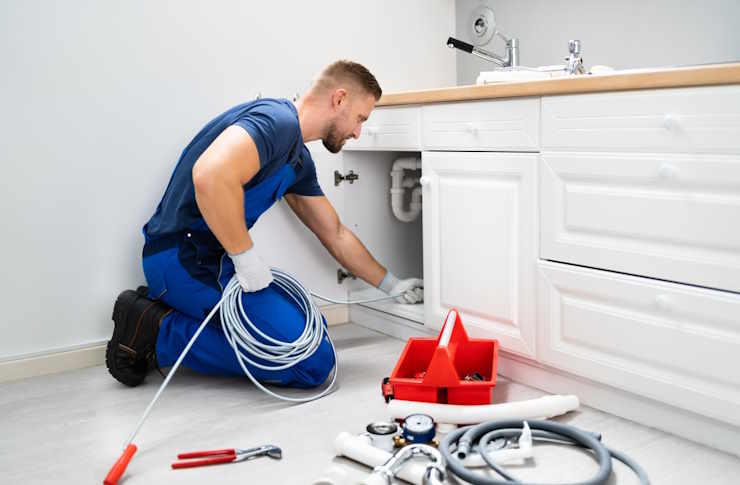Common Appliance Problems and Professional Repair Solutions
Household appliances are essential to modern living, but when they malfunction, daily routines can quickly become disrupted. From refrigerators that stop cooling to washing machines that leak, appliance issues are both frustrating and common. Understanding the typical problems that arise and knowing when to seek professional help can save time, money, and prevent further damage to your valuable equipment.

What Are the Most Common Appliance Problems?
Homeowners frequently encounter a range of appliance issues that can disrupt daily life. Refrigerators may fail to maintain proper temperatures, leading to spoiled food and wasted groceries. Dishwashers often develop drainage problems, leaving standing water and dirty dishes behind. Washing machines can experience leaks, unusual noises, or failure to spin properly. Ovens and stoves may have faulty heating elements or temperature control issues. Dryers commonly suffer from poor airflow, extended drying times, or complete failure to heat. Recognizing these problems early allows for timely intervention and can prevent more serious damage that might require costly replacements.
How Do You Know When to Call a Professional?
While some minor appliance issues can be resolved with basic troubleshooting, many problems require professional expertise. If your appliance shows signs of electrical issues such as sparking, burning smells, or tripped circuit breakers, immediate professional attention is necessary for safety reasons. Persistent leaks, unusual noises that worsen over time, or complete failure to operate are clear indicators that expert diagnosis is needed. Attempting complex repairs without proper knowledge can void warranties, cause additional damage, or create safety hazards. Professional technicians have specialized tools, training, and access to manufacturer parts that ensure repairs are completed correctly and safely.
Understanding the Appliance Repair Process
Professional appliance repair typically follows a structured approach. Technicians begin with a thorough diagnostic assessment to identify the root cause of the problem rather than just addressing symptoms. This may involve testing electrical components, checking for mechanical wear, inspecting seals and hoses, or running diagnostic programs built into modern appliances. Once the issue is identified, the technician provides an estimate for parts and labor. Reputable professionals explain the problem clearly, offer transparent pricing, and discuss whether repair or replacement makes more economic sense. The actual repair work involves replacing faulty components, recalibrating systems, and testing the appliance to ensure proper function before completion.
What Factors Influence Repair Costs?
Several variables affect the overall cost of appliance repair services. The type and age of the appliance play significant roles, as older models may require harder-to-find parts or more extensive labor. The complexity of the repair matters considerably; simple fixes like replacing a door seal cost far less than addressing compressor failures or control board issues. Geographic location influences pricing, with urban areas typically commanding higher service rates than rural regions. Emergency or after-hours service calls generally incur additional fees. The availability of parts can impact both cost and timeline, particularly for discontinued models or specialty appliances.
| Appliance Type | Common Repair | Typical Cost Range | Average Service Time |
|---|---|---|---|
| Refrigerator | Thermostat replacement | $150 - $400 | 1-2 hours |
| Washing Machine | Pump or belt replacement | $120 - $350 | 1-2 hours |
| Dishwasher | Heating element repair | $100 - $300 | 1-1.5 hours |
| Dryer | Thermal fuse replacement | $80 - $250 | 0.5-1 hour |
| Oven/Range | Igniter or element replacement | $150 - $450 | 1-2 hours |
Prices, rates, or cost estimates mentioned in this article are based on the latest available information but may change over time. Independent research is advised before making financial decisions.
How Can You Prevent Future Appliance Problems?
Regular maintenance significantly extends appliance lifespan and reduces the frequency of repairs. Clean refrigerator coils every six months to maintain efficient cooling and prevent compressor strain. Inspect and clean washing machine hoses, checking for cracks or bulges that could lead to leaks. Remove lint from dryer vents regularly to improve efficiency and reduce fire risk. Avoid overloading appliances beyond their recommended capacity, as this causes excessive wear on motors and mechanical components. Use appliances according to manufacturer guidelines and address minor issues promptly before they escalate into major problems. Consider scheduling annual professional maintenance for high-value appliances to catch potential issues early.
Choosing the Right Repair Service
Selecting a qualified repair service requires careful consideration. Look for technicians with proper licensing, insurance, and manufacturer certifications when applicable. Read reviews from multiple sources to gauge customer satisfaction and service quality. Request detailed written estimates before authorizing work, ensuring all costs are clearly outlined. Ask about warranty coverage on both parts and labor, as reputable services stand behind their work. Verify that the service provider has experience with your specific appliance brand and model. Local independent repair shops often provide personalized service and competitive pricing, while manufacturer-authorized service centers offer specialized expertise for specific brands.
Understanding common appliance problems and knowing when to seek professional repair solutions empowers homeowners to make informed decisions about their household equipment. While some issues require immediate expert attention, regular maintenance and prompt action when problems arise can minimize disruptions and extend the useful life of essential appliances. By choosing qualified professionals and maintaining realistic expectations about repair costs and timelines, you can keep your home running smoothly without unnecessary expense or inconvenience.




